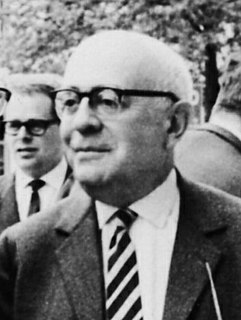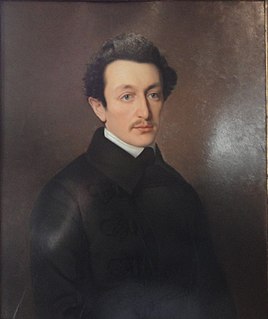A Quote by Ken Wilber
For what we don't realize today is just what the typical self of every previous stage failed likewise to comprehend: this is not the highest and greatest mode of consciousness which can be attained - there lie ahead the realms of the superconscious and the pitiful ego, by comparison, is as a speck of nothingness.
Related Quotes
The term "self" seems a suitable one for the unconscious substrate whose actual exponent in consciousness is the ego. The ego stands to the self as the moved to the mover, or as object to subject, because the determining factors that radiate outward from the self surround the ego on all sides and are therefore supraordinate to it. The self, like the unconscious, as an a priori existent out of which the ego evolves. It is, so to speak, an unconscious prefiguration of the ego. It is not I who create myself; rather, I happen to myself.
In Buddhist ideology, the conventional self is that which is constructed in a way by the use of the pronoun, and when you realize there is no absolute ego there, no disconnected one, self, or ego, then that actually strengthens your conventional ego. It does so in the sense that then you realize it's a construction, and you can strengthen it in order to help others, or do whatever you're trying to do, it's not like you no longer know who you are. Then you can organize your behavior by using your ego, as it's now the pronoun.
"Transcending the ego" thus actually means to transcend but include the ego in a deeper and higher embrace, first in the soul or deeper psychic, then with the Witness or primordial Self, then with each previous stage taken up, enfolded, included, and embraced in the radiance of One Taste. And that means we do not "get rid" of the small ego, but rahter, we inhabit it fully, live it with verve, use it as the necessary vehicle through which higher truths are communicated. Soul and Spirit include body, emotions, and mind; they do not erase them.
An honest self-portrait is extremely rare because a man who has reached the degree of self-consciousness presupposed by the desire to paint his own portrait has almost always also developed an ego-consciousness which paints himself painting himself, and introduces artificial highlights and dramatic shadows.
Then ego goes on growing, because the society needs you as an ego, not as a Self. The Self is irrelevant for the society; your periphery is meaningful. And there are many problems. The ego can be taught and the ego can be made docile and the ego can be forced to be obedient. The ego can be made to adjust, but not the Self. The Self cannot be taught, the Self cannot be forced. The Self is intrinsically rebellious, individual. It cannot be made a part of society.
The focus of all life is its economy, the mode through which every living creature produces its material existence. I know no other criterion for the evaluation of social life except that of social economy. In society, just like anywhere else, the mode of production is the focus around which revolve all the modes of life: in the historical life of conscious beings, it is also the focus of all modes of consciousness.
Looking at the world from other species' points of view is a cure for the disease of human self-importance. You suddenly realize that consciousness - which we value and we consider the crowning achievement of nature, human consciousness - is really just another set of tools for getting along in the world.
There are only two states of consciousness that exist - the state of the ego and the state of love. The ego is the narrow state, the seed-form, the atomic stage; love is all encompassing, love is God. The center of the ego is I; the ego exists for itself. The nectar of love is the universe. Love exists for all.































